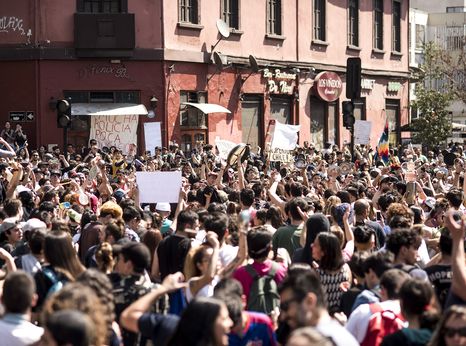Mass repression of protesters

What are the protests about?
Days after the announcement of an increase in public transport fares in Chile’s capital, Santiago de Chile, thousands of people mobilised to demand a freeze on the fee increase, but their anger wasn't fueled by the transport fees alone. Protesters are also demanding solutions to a variety of policies that have placed a burden on vast sectors of Chilean society; impacting their economic, social and cultural rights.
Initial reports detail mass detentions – including the arrest of minors – scores of people tortured or ill-treated, while some have been seriously injured or even killed in violent incidents that occurred during peaceful protests.
Government reaction
After several violent episodes in the streets the Chilean government has imposed a state of emergency and suspended public transportation on 18 October. The decree called on the military to police demonstrations and impose a curfew in the metropolitan area of Santiago, and other cities. The curfew began on 19 October and is still in effect.
The Vice Minister of Interior reported that 15 people have died in violent incidents during the protests throughout the country. On 21 October, the local organisation, National Human Rights Institute (Instituto Nacional de Derechos Humanos, INDH), reported more than 1,400 people detained, including 181 minors, and over 80 persons injured by firearms. They have also recorded countless reports of torture and ill-treatment, among other human rights violations.
On 20 October, President Sebastián Piñera called political parties to agree on a new law that would halt the increase in public transportation fares, the law was approved on 22 October. Demonstrators and social movements are calling for significant measures to address the underlying factors of inequality. Protests continue.
Photo by Manuel Lanzuela
- Downloads
- Download UA in PDF
- Download UA in Word